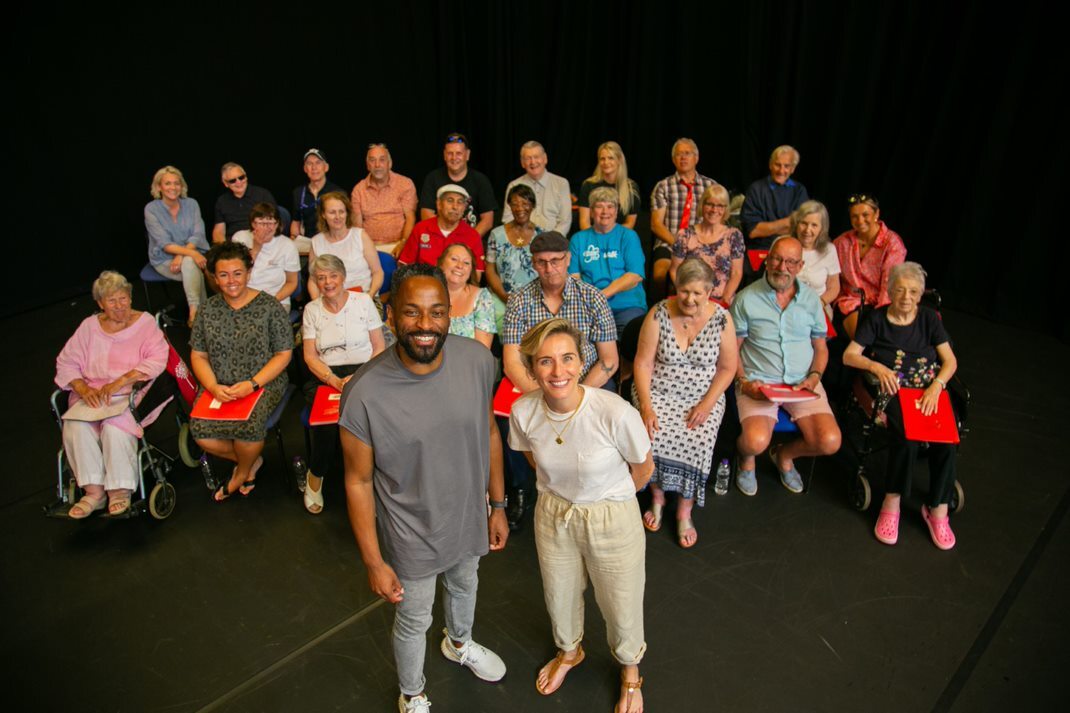
Interest in singing groups for people living with dementia has soared in Wales thanks to a moving two-part documentary fronted by TV star Vicky McClure, says Alzheimer’s Society.
The choir documentary ‘Our Dementia Choir Sings Again’ shines a light on the connection between music and memory and how participation in singing groups can benefit people living with dementia.
Since the first of the two episodes, sign-ups from organisations and individuals interested in becoming a Singing for the Brain delivery partner have almost trebled.
Singing for the Brain is an uplifting and stimulating group activity, built around familiar and new songs, with fun vocal warm-ups. There are already more than 250 Alzheimer’s Society and delivery partner-run groups in the UK and 34 in Wales but Alzheimer’s Society wants more people in the region to benefit.
The charity has created bespoke training to care providers, organisations or individuals across the UK, with an interest in music, to run their own group and become a Singing for the Brain delivery partner. They will provide partners with the support and resources to successfully do this.
Jacqueline Ayres knows the benefits music has as a Group Coordinator organising the Singing for the Brain group in Cardiff and Vale. She says: “Singing for the Brain brings people affected by dementia together to sing a variety of songs they know and love, in a fun and friendly environment.
“We also do vocal exercises that help improve brain activity and wellbeing. It can be a great comfort to attendees to have the opportunity to talk and socialise with other people affected by dementia.”
On average, Alzheimer’s Society receives two to three online registration forms to become a Singing for the Brain delivery partner a day.
There are around 45,000 people estimated to be living with dementia in Wales. Singing for the Brain helps to reduce social isolation, improve quality of life, wellbeing and mood.
Sue Phelps, Country Director for Alzheimer’s Society in Wales, said: “Music memory is often retained when other memories are lost. Singing for the Brain can help people, even in advanced stages of dementia, to tap into long-term memories linked to music and song – for some, this can mean they can communicate through singing when no longer able to do so through speech.
“We are changing the way we provide support for people affected by dementia in the community so we can reach more people through delivery partners. We want more people to benefit from our popular Singing for the Brain service.
“Too many face dementia alone. We want everyone affected by dementia to know that whoever you are, whatever you’re going through, you can turn to Alzheimer’s Society for practical advice, emotional support and guidance for the best next step.”
To find out more, join a group or to register your interest to become a Singing for the Brain delivery partner, visit alzheimers.org.uk/singingforthebrain


